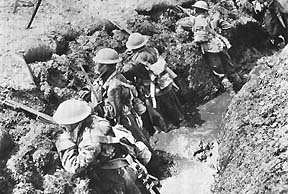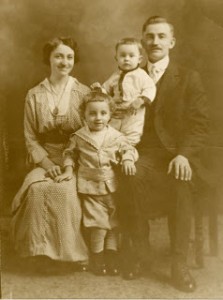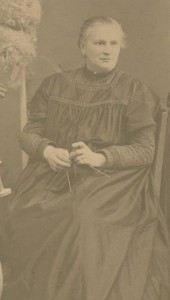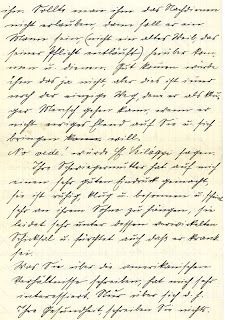
World War I trench warfare
photo credit: www.anunews.net/blog
Last week’s photos pictured Josef and Lisi Gartz, with their two young sons, Friedrich and Wilhelm happy and healthy in Chicago about early 1916 (see below) and again in the summer of 1918. (See Family and Dead Dog).
These family photos were taken at the same time that Europe was engulfed in the nightmare of World War I, and most young men of Josef’s age (25 in 1914) would have been covered in lice, crouching and rotting in some trench, being blown up or blowing up other young men.
My grandmother’s brother, Samuel, was one of those young men (See The Fallen-Part I).
Let’s jump back four-six years before these family photos were taken, 100 years ago, to the spring of 1912. Josef and Lisi had married five months earlier and were both working seven days a week, Josef for fourteen hours a day, Lisi for twelve hours a day. They were barely getting by, but they had jobs.
Josef most certainly could have been among the dead had he stayed in Siebenbürgen (Transylvania). (See Drafted 100 Years Ago, where Josef’s draft notice is translated to English).
But the first year after Lisi and Josef had married in Chicago, my grandmother’s former employer, Mrs. Jickeli, saw only youthful indiscretion in their decision to emigrate to America. Two months after Lisi and Josef married in Chicago on October 13, 1911, Mrs. Jickeli had written Lisi Ebner a letter expressing her dismay at Lisi’s hasty departure to join her love, Josef Gärtz. She had chastised them both for their impetuous behavior and a host of issues, even declaring their marriage wouldn’t be considered valid in their homeland Siebenbürgen (because it hadn’t been announced in the church).
She reiterated her concerns in a second letter, three months later, in what today we might say was “beating a dead horse,” even if a stick of a slightly different length!
March 15, 1912
My Dear Lisi,
Are you satisfied with your home (apartment)? Have you been employed long and how does Gärtz like the cooking spoon? [Josef was working in a restaurant when Lisi arrived]. That you live in peace makes me happy. I have certainly never doubted that Gärtz seems like a good man (Mensch). I have always considered him to be a good and respectable/honest/decent man, but a bit of an odd fellow.
But you also know that I am too old and have seen too much of life to scream “Hurrah!” A happy marriage is very rare in life and to be sure, even more rare because no one holds his fate strictly in one’s own hands and no one knows what tomorrow brings. Besides that, marriage seems different after 10-20 years than in the first year. That you will experience, just as everyone has. For you and Gärtz it’s just that you went into your marriage so fast and with such impatience.
You will have to go through double the work and sacrifice and homesickness than you would have endured if you had waited one more year. Even our Lord God cannot reverse your fate. First Gärtz will have to comply with his military duty if nothing changes. Without you coming here, for the time, then the second thing that has to be is that your marriage must also be declared binding here. This is the only way a later happiness can bloom.
Mrs. Jickeli ends her letter with a few paragraphs of local news and heartfelt wishes, for after all, she was like a second mother to Lisi, and sincerely worried for her.
And now, dear Lisi, I wish you both very well, and don’t grow tired before you again have a strong foundation under your feet. We all greet you both from our hearts, and I remain for all time—Your old mother Berta Jickeli
Berta Jickeli was right in one regard: people certainly don’t have complete control over their fates, as all those who’ve been caught in war know so well. Yet Josef had influenced his fate, and the fate of his family, through his determination to get to America. The letters make it clear that friends and relatives back in Siebenbürgen/Transylvania expected he and Lisi would return. They didn’t know Josef very well.
So when another serious problem emerged back in Transylvania after Josef left for America, his swift decision to leave his countryland again appeared to those back home to have been foolhardy. Apparently some local person had taken advantage of Josef’s departure, perhaps in cahoots with a local official, and co-opted from Josef his home and land. Both Lisi’s father and Mrs. Jickeli weighed in on what had happened. Coming up next time at Family Archaeologist.




The plot thickens! Identity theft has been going on before credit cards and social security numbers!
Yes, Marian, If one isn’t available to protect one’s assets, vultures aplenty are ready to swoop in! Thanks for the comment.
Thanks for making such a spell-binding tale of your family’s history. It’s especially fun to know more than Lisi’s patronizing former employer.
Her entire life, my grandmother, Lisi, never stopped speaking of Mrs. Jickeli with a combination of love, awe, and reverence, which is why Berta J is able to speak so forthrightly to Lisi. First, she was part of an extremely powerful and wealthy family in the region. The Jickeli clan comprised scientists, merchants, politicians, lawyers, doctors, professors, etc. Also, Lisi felt she had learned so much from Berta Jickeli. She had lived with the family for five years, absorbing the incredible knowledge and savvy of this family, and truly loved them as her own. The difference in class, age, and… Read more »
Great story — I love Lisi’s relationship with Mrs. Jickeli. Interesting observations about marriage.
Great story — I love Lisi’s relationship with Mrs. Jickeli. Interesting observations about marriage.